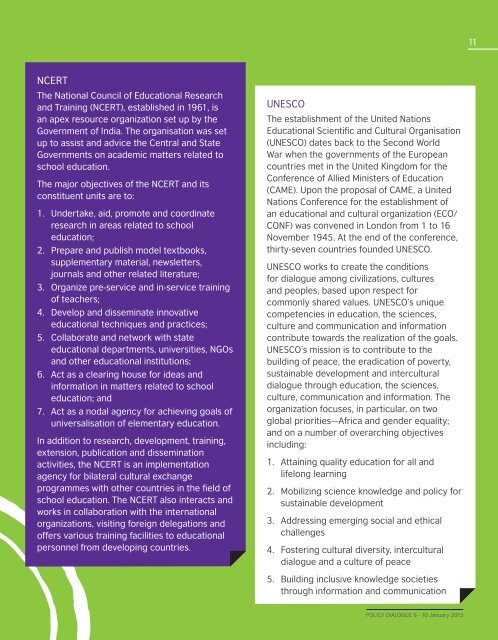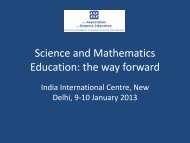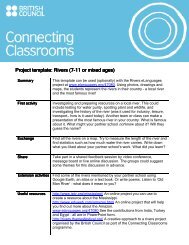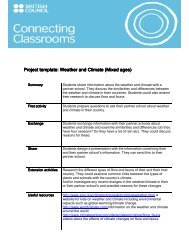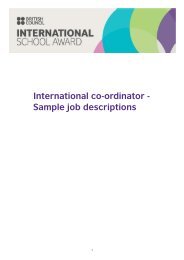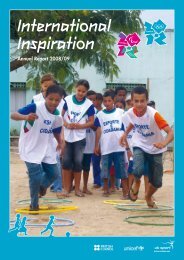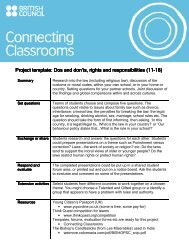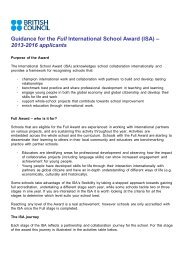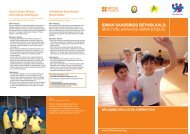Programme - British Council Schools Online
Programme - British Council Schools Online
Programme - British Council Schools Online
You also want an ePaper? Increase the reach of your titles
YUMPU automatically turns print PDFs into web optimized ePapers that Google loves.
11NCERTThe National <strong>Council</strong> of Educational Researchand Training (NCERT), established in 1961, isan apex resource organization set up by theGovernment of India. The organisation was setup to assist and advice the Central and StateGovernments on academic matters related toschool education.The major objectives of the NCERT and itsconstituent units are to:1. Undertake, aid, promote and coordinateresearch in areas related to schooleducation;2. Prepare and publish model textbooks,supplementary material, newsletters,journals and other related literature;3. Organize pre-service and in-service trainingof teachers;4. Develop and disseminate innovativeeducational techniques and practices;5. Collaborate and network with stateeducational departments, universities, NGOsand other educational institutions;6. Act as a clearing house for ideas andinformation in matters related to schooleducation; and7. Act as a nodal agency for achieving goals ofuniversalisation of elementary education.In addition to research, development, training,extension, publication and disseminationactivities, the NCERT is an implementationagency for bilateral cultural exchangeprogrammes with other countries in the field ofschool education. The NCERT also interacts andworks in collaboration with the internationalorganizations, visiting foreign delegations andoffers various training facilities to educationalpersonnel from developing countries.UNESCOThe establishment of the United NationsEducational Scientific and Cultural Organisation(UNESCO) dates back to the Second WorldWar when the governments of the Europeancountries met in the United Kingdom for theConference of Allied Ministers of Education(CAME). Upon the proposal of CAME, a UnitedNations Conference for the establishment ofan educational and cultural organization (ECO/CONF) was convened in London from 1 to 16November 1945. At the end of the conference,thirty-seven countries founded UNESCO.UNESCO works to create the conditionsfor dialogue among civilizations, culturesand peoples, based upon respect forcommonly shared values. UNESCO’s uniquecompetencies in education, the sciences,culture and communication and informationcontribute towards the realization of the goals.UNESCO’s mission is to contribute to thebuilding of peace, the eradication of poverty,sustainable development and interculturaldialogue through education, the sciences,culture, communication and information. Theorganization focuses, in particular, on twoglobal priorities—Africa and gender equality;and on a number of overarching objectivesincluding:1. Attaining quality education for all andlifelong learning2. Mobilizing science knowledge and policy forsustainable development3. Addressing emerging social and ethicalchallenges4. Fostering cultural diversity, interculturaldialogue and a culture of peace5. Building inclusive knowledge societiesthrough information and communicationPOLICY DIALOGUE 9 - 10 January 2013


